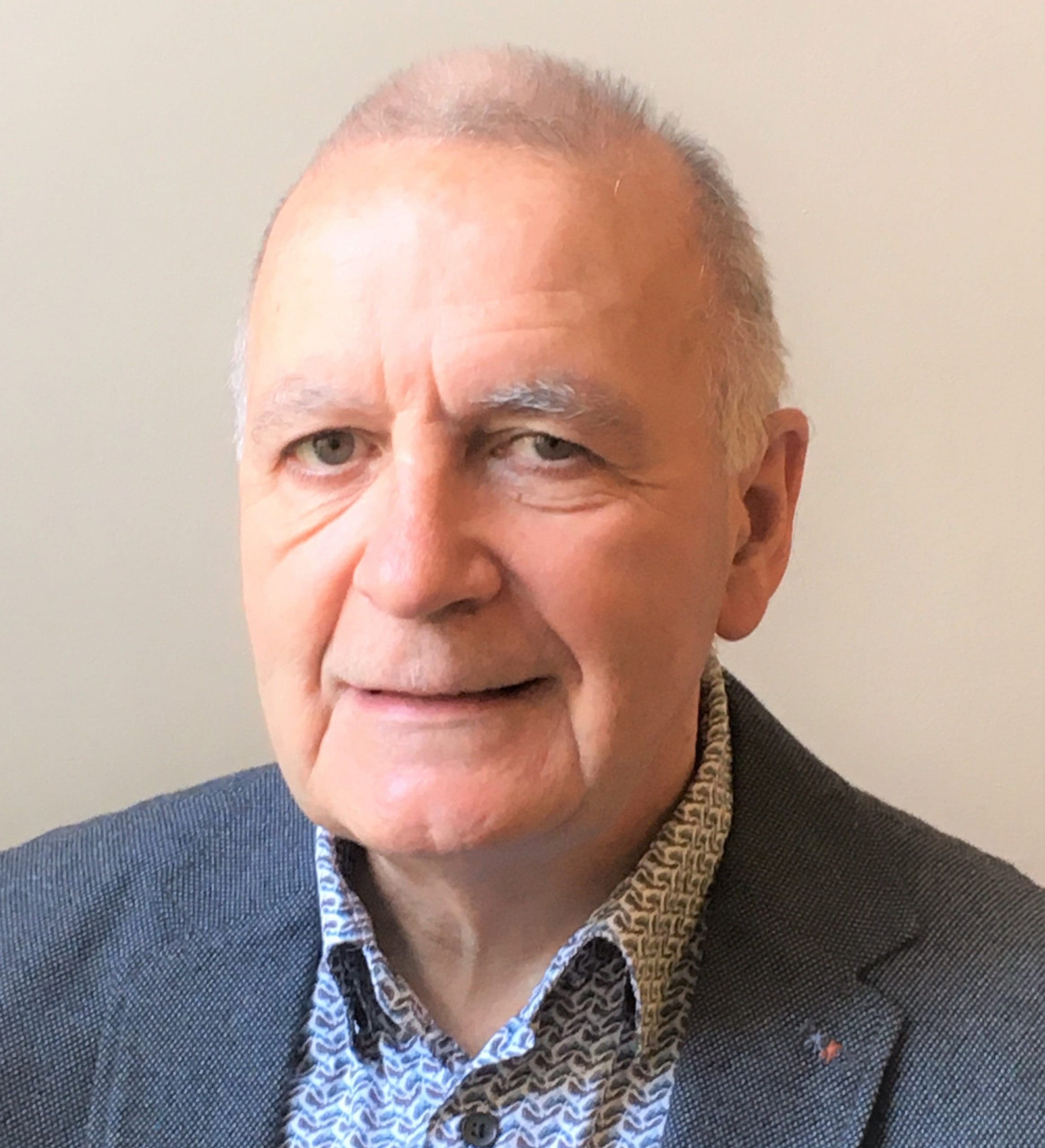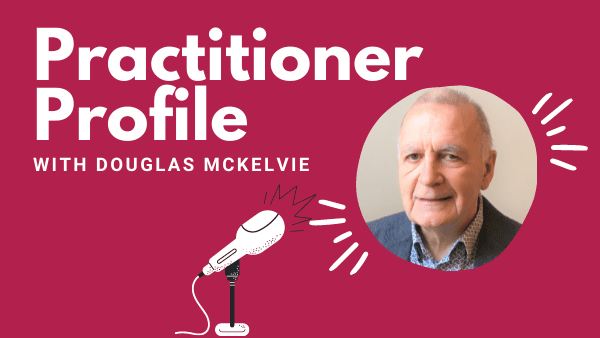Practitioner Profile: Douglas McKelvie, Symmetric Scenarios
Welcome to Practitioner Profiles, a series of up-close blog-length interviews with experienced System Dynamics practitioners. We have a standard set of 10 questions and let practitioners take the responses in any direction they choose. They tell us about who they are, how they got involved with the field, how they work with clients, and in what new directions they may be heading. A new profile will be posted every few weeks during 2021.
For any questions or comments, please contact the editors of these interviews, Dr. Jack Homer (jack@homerconsulting.com) and Dr. Saras Chung (saras@skipdesigned.com).
For today’s spotlight, we talked with Douglas McKelvie with Symmetric Scenarios.

What kinds of SD project applications does Symmetric Scenarios do?
Our emphasis is on health and social care and related domains, such as services for children, criminal justice, and workforce development and planning.
What is the history of the organization?
Symmetric was founded in 2005 by a small group led by Eric Wolstenholme. Initially, Eric, David Todd, and I were the main modelers, working alongside non-modeler colleagues, David Monk and Steve Arnold, who came from health services management. David Todd returned to New Zealand ten years ago, and Eric gradually retired. Now, I work with Donald Scott, a former social work colleague. Eric still contributes valued insights and mentorship.
What is your current role with the organization?
As owner, I run the business. I take the lead on model building (typically group model building), where I work with expert facilitators and other associates. I am based in Edinburgh and work across the United Kingdom, occasionally beyond.
What is distinctive in your approach to SD projects?
We almost always simulate, true to Forrester’s maxim that you cannot tell how a complex system will behave from a diagram alone. STELLA’s modular capabilities have made a big difference to how we develop models.
Our models often combine some simple structures, such as capacity-constrained service pathways, ageing chains, workforce chains, and financial flows. Modules make it much easier to lay out such structures.
How else is Symmetric distinctive?
For several of us, a strong commitment to a particular area, human services, pre-dated our interest in SD. And we collaborate—for example, we are currently working with action researchers on the subject of family support.
How did you originally get interested in System Dynamics, and when was that?
My first career was as a social worker. In the 1990s, I had a national policy role, planning the Scottish social services workforce. Concurrently, I did masters study that introduced me to simulation. In 2002, I moved into consultancy, fortuitously becoming a colleague of Eric Wolstenholme and learning SD from him.
What individuals and organizations are inspirations to you?
Many. I aspire to combine Eric’s insights on service flows and capacity constraints with the pioneering work by Jack Homer and Gary Hirsch on the dynamics of specific diseases. I admire how John Sterman and Kim Warren explain SD clearly and concisely. I also enjoy model-chat with Sarah Wylie Boyar. And I feel indebted to isee systems, who keep extending the power of STELLA for modelling and communicating insights.
What have you been able to achieve with your SD modeling?
It’s important that our models have integrity and provide meaningful insights for the client. These insights may sometimes seem obvious to a systems thinker, but they do not start that way for our clients. For example, in the UK health system, the discourse around waiting times distorts people’s mental models to the point that they forget the simple physics of capacity limitation. When people become expert at managing the problems generated by poorly designed systems, they can end up confused about cause and effect. We try to shift their mental models so they can see how things work and what is possible.
What challenges have you experienced with respect to SD project work?
There’s usually a point in the project when everybody wants to see a full running model, and you have to commit to a level of granularity and a policy time horizon. That can be a stressful time, having to place a bet on how best to address the client’s questions. Also, there’s the issue of data. For all the talk of being ‘data-led’, few organizations have a proper comprehensive approach to data collection. Wouldn’t it be nice to start every project with time series data covering all key variables?
What kinds of work would you like to be doing over the next 5 years?
I’d like to spend more of my time training people in how to build good models, as well as developing exploratory models based on my own interests. Also, I’d like to write more. Eric Wolstenholme and I published a book in 2019, The Dynamics of Care (Springer), outlining a variety of models built by Symmetric.
Have questions/comments? Reach out to Douglas McKelvie or leave a note below in the comments!
Recent Posts
How Did En-ROADS Get 755,000 users? Lessons on Modeling, Interface Design, and Facilitation
This article discusses the En-ROADS climate model, detailing its robust modeling, intuitive interface design, effective facilitation, and strategic policy engagement for global impact.
Society Governance Updates
New System Dynamics Society leadership
Call for Presenters: Seminar Series
Share your insights in the System Dynamics Society Seminar Series. Submit your proposal and join a global community of experts
Upcoming Events

2024 International System Dynamics Conference
The International System Dynamics Conference is coming to Bergen! Save the date: August 4-8, 2024. We hope to see you there! #ISDC2024
Recent Business cases
System Dynamics Helps Evaluate Anticipatory Action on Cholera Outbreaks
Humanitarian agencies encourage anticipatory action in disaster response to cholera outbreaks in the Democratic Republic of Congo.
Management Design for Planted Forests in Japan Using System Dynamics
Hanno City in Saitama Prefecture used a system dynamics model to enable detailed analysis of labor requirements and changes in forest conditions.
Solving Bottlenecks in Dairy Production Facilities with System Dynamics
FriedslandCampina employed system dynamics to strategically enhance production efficiency in the midst of factory merging.




